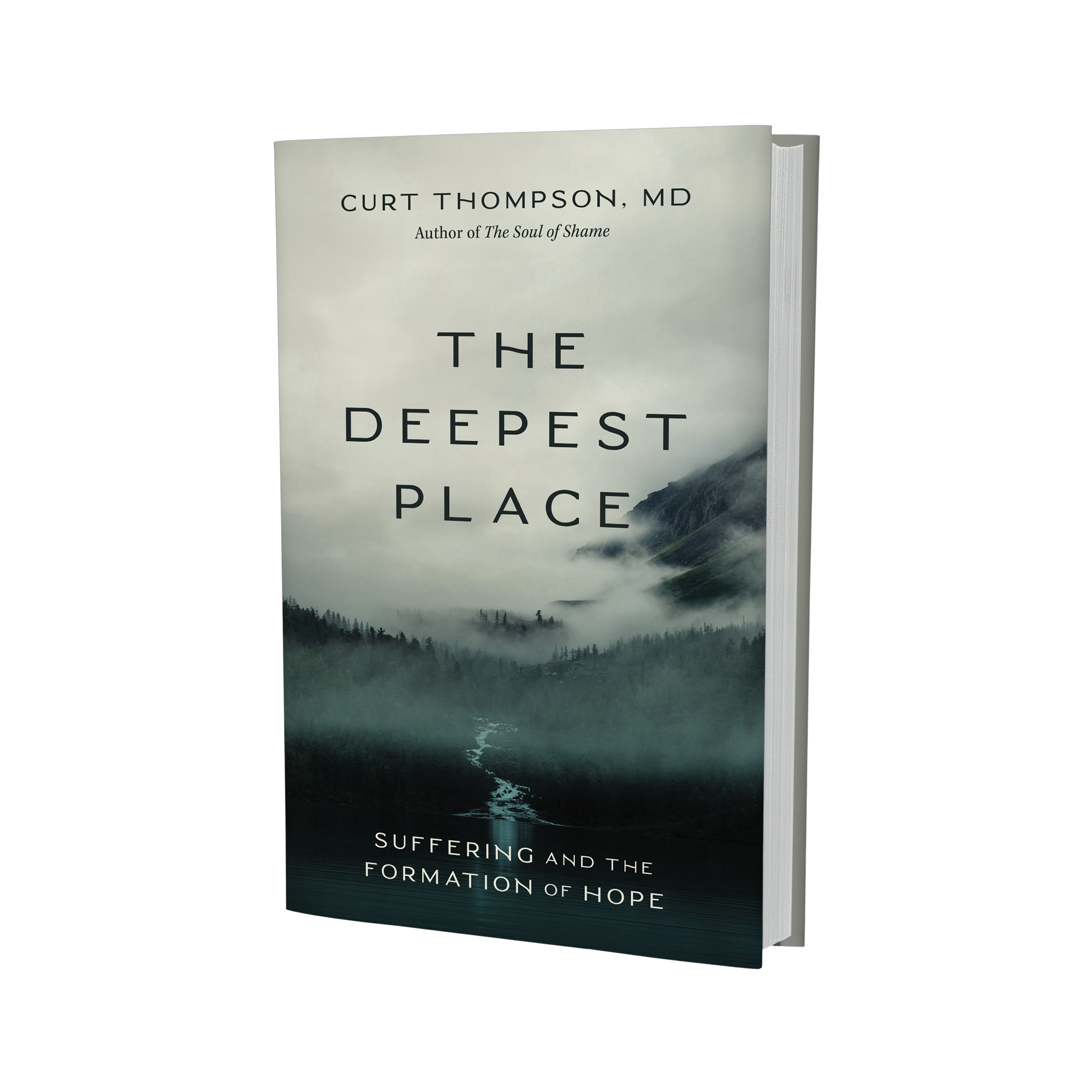Inflammation of the Heart

April 21, 2020
We’re sick of it. Just sick of it. And sick would be the proper word. A word that points to so much of what we are feeling in response to COVID-19, so much of what is contained, ultimately in the process that we are each undergoing in our own way. And that sickening process we find ourselves immersed in is none other than grief. Grief, as it turns out, is one of the dominant features of our having been engulfed by the events of our time, weaving its way in and around our anxiety and anger, inflaming our hearts and weighing down our lives along the way.
Grief is our emotional inflammatory response to loss. It is an interpersonal neurobiological event with which we react when we are deprived of something—anything—to which we have a significant emotional attachment, to which we have ascribed salient meaning. It could be a relationship. An object. An event or experience. A job, a title, a savings account, an expectation or hope. I don’t need to remind you of the endless list of things we have lost not only in the last month, but also those that we are anticipating losing in the future.
I liken it to inflammation because in many ways it is like an injury to the soul, the severity of which depends on the nature of the loss. Everything from our very lives (or the life of someone we know and love) to our mobility to hugs to receiving the elements of bread and wine directly in the celebration of the Eucharist, not to mention the literally dozens of even smaller, embodied features of our daily routines that have seemingly in a heartbeat disappeared from our landscape, now replaced with new stresses of the eternal meeting of Zoom and homeschooling our children while maintaining full time jobs. Or jobs that are no longer there and/or other ways we now find ourselves spending our days in isolation—and alone.
Just as the inflammatory response of the body mobilizes in the same way whether you have a minor abrasion, a sprained ankle or a life-threatening infection, so will our grief emerge unbidden and progress, albeit often subtly and not in a neat, linear fashion, through the stages of denial, anger, bargaining, depression and acceptance. When you lose something that is meaningful to you, sooner or later grief will make its way to your doorstep, its intensity commensurate with the importance of what we have lost. As with an abrasion, our sadness may be minimal and last but a few moments; but with larger losses—and in our current situation, with the collective losses of many, many things—our grief will be much more substantial. The question is not, “Will we experience it?” The question is how we respond to it. When I sprain my ankle, I can pretend it doesn’t hurt and attempt to stay on the field, but in the end my ankle’s injury is going to have its say. And our hearts are talking a blue streak right now, and a lot of what they are saying—and in some cases in ways that are too much for words—is just how grief stricken we are.
Hence, not only should we not be surprised that grief is what we’re swimming in, it is important for us to be aware of what that water is like and thus respond accordingly. First, it’s important to acknowledge that we are losing things. It is tempting to minimize our losses if we can still look around and be grateful that we have a job, our health and toilet paper. Don’t get me wrong. Gratitude is a life-giving skill we need to develop. But how many times have we thought or said, “When I consider how much I have, I can’t complain.” We encounter the stories of people who have sustained real losses—life-threatening response to the virus, work, life savings—and it becomes easy to dismiss the notion that our social distancing, clandestine visits to the grocery store, along with the departure of our worship, business or sports gatherings represent genuine losses. That we can’t visit with our children or grandchildren creates great sadness—sadness that we quickly deny because at least our kids are safe.
This is evil’s playground: inviting us to pretend we don’t really feel what we feel when we compare our circumstances to those of others, and in so doing, judge our own hearts’ longings to be unimportant. This only leads to our minimizing the next loss, and then the next, and on it goes. The problem with this is that we begin to collect an entire library of “small” emotional losses that we keep burying, yet have to burn energy to contain, and then wonder why we’re so tired, irritable, and eventually even depressed, not wanting to get out of bed, unable to find the energy to create beauty and goodness in the places we are dwelling, even if those places aren’t changing much.
Second, grief is like a magnet. You may have unfinished grief business from other times in your life, and if you do, the grief you are experiencing now will draw those small shards to itself. You look around you and wonder, “Why am I this sad?” It is entirely possible that whatever losses you are encountering because of COVID-19 may be leaching out sadness you have protectively buried in your nonconscious past, sadness from losses of all kinds, both small and large that we have kept hidden. But our brains have a rather predictable habit of taking advantage of the opportunity for healing. In this sense, God will use the grief of the present moment to bring into the light as much of our grief as we are willing to admit.
Which brings us to a third element. Our minds were made for connection, not least when we are suffering. Hence, we must be willing to name our sadnesses, both great and small. And we must name them to another who is able to validate our emotion. It is in this action that our minds realize they are not alone, and our grief is shared. In sensing that someone else also shares the load of our grief, we no longer have to burn the energy we have been consuming in our attempt to contain it. And with the lightening of our load, we are freed that much more to care for others, receiving their grief, and to begin the process of creating goodness and beauty around us.
A fourth element of our grief that is particular to our time is just that—time. The brain can do a lot of difficult things for a long time, as long as it doesn’t have to do it alone, and as long as it has a time frame for the work. Our present situation is one in which placing time limits is…limited. We don’t actually know how long our social distancing will last. The healing of grief in part depends on our ability to, at some point, envision a future, even in the near term, when I can begin to “get back to normal.” In our time, what that means is that we may not be able to easily predict an end to our sorrow. Which is why we must be unafraid to name our grief as many times as we need to, and have people who will be able to hear us in the process. In this sense, there is no magic time frame for grief’s resolution, yet another reason for us to be practicing contemplative prayer as a way to strengthen our capacity to remain as much as possible in the present moment.
But it was Jesus who said, “In this world you will have tribulation—read: grief—but be of good cheer, for I have overcome the world.” What does it mean for us to practice having good cheer, even in our grief? For that to happen, here are some things to remember and some ways to get started:
- Your grief is unique to you. Don’t compare your grief to that of another. What is important is that you are able to name your emotion such that you don’t end up having to contain it in your nonconscious, only further draining you of your vitality. Remember, in this time our grief can tend to collectively be about many, many things we have lost. Name each and every loss, no matter how small.
- We must name our griefs in order to create the space available to discover joy. The space taken up by the grief we retain will be unavailable to make room for joy, as we will still be exerting energy containing our affliction. To maximize joy, we must name our grief.
- Create a Lament and Gratitude Journal. Each day, hand write down at least one thing for which you are aware that you have lost or will lose. Allow yourself to be aware of what you feel. Then add to that one or two things from your day for which you are grateful.
- Share with one to three people the items from your Journal. This is important to share with others who are able to validate your feeling of sadness, so as to begin the process of being more connected over the very things that have been the source of your grief.
- Do not be surprised if you need to talk about certain losses repeatedly over some extended period of time. It will require that you have people who will listen to you with patience, and who will be able to point to action items you can eventually take to turn your attention to other things.
- The weight of your grief may be due to losses sustained at other times in your life. Be open to naming and writing about your losses you discover that have, perhaps, very little to do with COVID-19.
- Be ready to be the listening ear to others in their grief. But remember, we can’t give what we don’t have. We can only listen to the degree we have been heard. Plan to both tell of your grief and listen to another’s at least two to three times a week.
Finally, know this. The inflammatory response is what our body offers to us as a means to healing. Grief, at first and, well, for that matter at any glance, doesn’t seem to be anything but hard and unpleasant. As followers of Jesus, it is important that we remember that Jesus knows grief. And he isn’t afraid of it. He knows of what we speak to him and to others. He knew the grief of the loss of Lazarus. Of the travail of Jerusalem. Of Gethsemane. Of Golgotha. And he welcomes your grief into his presence—and into the presence of others in whom you trust–in order to hear it. To heal it. To transform it to joy. No matter how long it takes.
